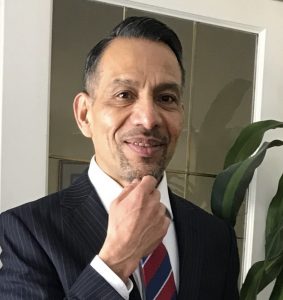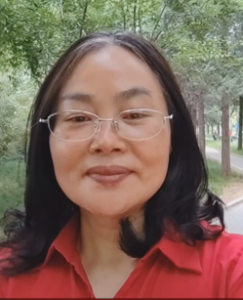
International Conference on Emerging Technologies in English Language Education in the 21st Century: Addressing the Present and Envisioning the Future
Keynote Speakers

Professor Averil COXHEAD
Professor in Applied Linguistics and TESOL, School of Linguistics and Applied Language Studies, Victoria University of Wellington, New Zealand
Title of the Keynote Speech
Bringing Vocabulary into the Light in Language Teacher Education with Online Tools
Abstract
Vocabulary is important to all language learners but it is often a hidden element in language teacher education. The more vocabulary our learners know, the better. The more teachers know about what their learners’ vocabulary knowledge, the better. This talk takes a broad view of vocabulary in English, beginning with a key question: how much vocabulary might learners know in English and how can we measure that knowledge? The next question is: what principles we can draw on to ensure classroom and textbook activities support vocabulary learning? And finally, what tools are available online to help teachers and teacher educators find out more about vocabulary in written and spoken texts?
Speaker’s Bio
Professor Averil Coxhead teaches undergraduate and postgraduate courses in Applied Linguistics in the School of Linguistics and Applied Language Studies, Victoria University of Wellington, Aotearoa/New Zealand. Her most recent books include Connecting corpora and language teaching (2022; Foreign Language Teaching and Research Press), Measuring the vocabulary size of native speakers (with Paul Nation; 2021; John Benjamins), English for vocational purposes (Routledge, 2020) and Reading for the academic world, a series of textbooks with Professor Paul Nation (2018, Seed Learning). Averil’s research interests include vocabulary for specific and academic purposes, corpora for language learning and approaches to teaching and learning vocabulary.

Professor Martin GUARDADO
Professor of Linguistics, Department of Linguistics, Faculty of Arts, University of Alberta, Canada
Title of the Keynote Speech
Emerging Technologies for English Language Learning: Passing Fads or Paradigm Shifts and How do we Know the Difference?
Abstract
As the digital era advances, the impact of technology in language education cannot be overstated. With its potential to help foster student engagement and to enable tailored learning experiences (Shadiev & Wang, 2022), technology has fundamentally reshaped the field. In this evolving landscape, this presentation will engage with an array of emerging digital tools through analytical lenses that include theory, pedagogical effectiveness and ethical considerations. By delving into recent research, the presentation will examine successful and unsuccessful technologies, drawing critical lessons from each. Case studies will be used to highlight some of the factors that may contribute to the efficacy of digital tools, including methodological alignment (González-Lloret & Ortega, 2014), user engagement and interaction (Long & Crookes, 1992), adaptability and authenticity (Holden & Sykes, 2011), and real-world relevance (Liddicoat & Scarino, 2013). Crucially, the broader “positive impact” (Chapelle, 2014) of digital tools extends beyond language learning.
Briefly tracing the trajectory from early language laboratories to the current AI boom, the presentation will critically examine what constitutes a significant shift in language education versus a transient trend. It will consider the effectiveness of digital tools, with a particular emphasis on AI’s expanding role in customizing learning. It aims to underscore how these tools can open new opportunities for the personalization of instruction (Pierpaolo & Antonia, 2023) and foster active learning in language education. Ultimately, the discussion aims to equip language educators and scholars with some of the understanding necessary to harness these technological advancements for enriching language instruction, potentially further preparing for a future where technology is increasingly woven into the educational fabric.
Speaker’s Bio
Martin Guardado (PhD, University of British Columbia) is a Professor in the Department of Linguistics at the University of Alberta. His scholarly interests are concentrated in the areas of English for academic purposes, TESL and technology, the revitalization of Indigenous languages, and the socialization of heritage languages. His scholarly contributions have appeared in an array of publications, including Computers and Composition, The Canadian Modern Language Review, and TESOL Quarterly. He has recently authored four books, published by De Gruyter Mouton and Palgrave Macmillan as well as under a Creative Commons OER license (Open Education Alberta).

Professor Meihua LIU
Professor of Applied Linguistics, Department of Foreign Languages and Literatures, Tsinghua University, China
Title of the Keynote Speech
Role of Technology in English Teaching and Learning: Evidence from Studies in Chinese EFL Contexts
Abstract
The past 50 years have seen rapid growth and development in educational technology. The use of technology has significantly advanced English teaching and learning in terms of methods, processes, and outcomes. For example, PowerPoint presentations, videos, web-based meetings, Google Classroom, machine feedback, and virtual classrooms have been widely used in schools and universities around the globe, greatly enriching both teaching and learning experiences. To demonstrate the effects of technology on English language teaching and learning, this talk will share some studies conducted in Chinese EFL contexts. These studies show that the use of technology helps reduce students’ anxiety, boost their self-confidence and enjoyment, improve their presentation and communication skills, enhance their spoken English, test performance, and writing quality.
Speaker’s Bio
Professor Meihua Liu is currently a Professor of Applied Linguistics in the Department of Foreign Languages and Literatures at Tsinghua University, Beijing, China. Between 2011 and 2012, she was a Visiting Scholar in the Department of Applied Linguistics at the University of California, Los Angeles, USA. Professor Liu was a top-cited scholar in the field of Social Sciences in China from 2014 to 2022 and was recognised as one of the top 2% of linguists globally in 2023. Her research interests mainly include second language/ foreign language teaching and learning, individual differences (e.g., reticence and anxiety), English as a foreign language writing, and international education.

Professor Shirley O’NEILL
Professor of Language and Literacies Education, School of Education, University of Southern Queensland, Australia
Title of the Keynote Speech
How New Technologies Can Support Language Learning through Collaborative Meaning Making and Social Capacity Building
Abstract
This presentation examines how the use of current digital communication technologies can support English language learning by creating more authentic learning environments that can engage students in collaborative meaning making. It includes the use of multimedia and multimodal texts and the potential for collaborative language learning through the CLOUD and ensuing social capacity building by increasing language learner agency and contribution to peers/group. This is exemplified through three vignettes.
It considers how this change in pedagogy may challenge both the teacher and the learner to reconceptualise 21st century language learning spaces and critique traditional practice. It compares and contrasts the pedagogical differences and considers the importance of teacher professional development to support making the shift to a more student-centred approach. In doing so the importance of teachers’ understanding of the dialogic approach, turn-taking, and use of metalanguage along with the ability to adapt their English language use to students’ varied proficiency levels is emphasised, as is the potential of the incorporation of a project/problem-based approach.
Speaker’s Bio
Professor Shirley O’Neill is Professor of Language and Literacies Education in the School of Education at the University of Southern Queensland. Her research focuses on teacher cognition and classroom discourse, TESOL/literacy pedagogies, assessment, student capacity building, use of AI in teacher reflective practice and service learning. Her book Teaching English as a second language, Oxford University Press, with A, Gish, is widely used in preservice teacher education in Australia and internationally. Her most recent publications relate to the contemporary challenges of languages needs in linguistically diverse and superdiverse communities. Released in 2021, is her book chapter entitled: New opportunities for languages learning through 21st Century knowledge building communities, which reconceptualises languages education, in the ground-breaking book, edited by Ruth Arber, Michiko Weinmann and Jill Blackmore, Rethinking languages education: Directions, challenges and innovations.
Contact Us
For further information about the department, our programmes or services, please get in touch.
About Us
The Department of English offers a Bachelor of Arts (Honours) in English Programme which is unique in Hong Kong as it strategically combines English Studies, Business Studies and General Education, with the objective of training students to adapt to a diverse range of situations and skills for the workplace.

